Tip 1: Take note of the weather
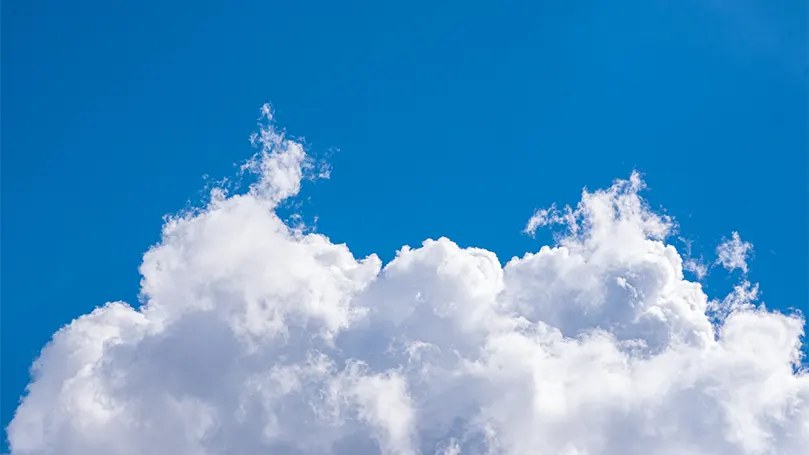
As you'll soon see, we're going to start things off rather simple and then slowly work ourselves up to more advanced tips. However, you need to get the basics down first and no tip is more basic than taking note of the weather! After all, spending time outdoors means there's very little between you and the elements.
So, first off, take note of whether it might rain, or snow if it's wintertime. Since moisture can both ruin your camping gear and leave you soaking, which can in turn lower your immune system, it's important to be prepared. Therefore, if you're going to sleep outdoors for a longer period of time or there's a slight chance of rain or snow, pack the appropriate gear.
This means that your tent can withstand downpours and that your sleeping bag is hydrophobic. However, this should also impact where you set up camp. That's because wet branches will be useless when trying to make a fire tomorrow.
Secondly, take note of the temperature. While it's normal for the temperature to vary throughout the day, you need to know the general range. Once again, this information will impact what gear you get and how many clothes you'll need. It can also be useful to jot down the natural light-dark cycle for that time of year so you have an idea of how much natural sunlight you have to work with.
Tip 2: Don't sleep directly on the ground
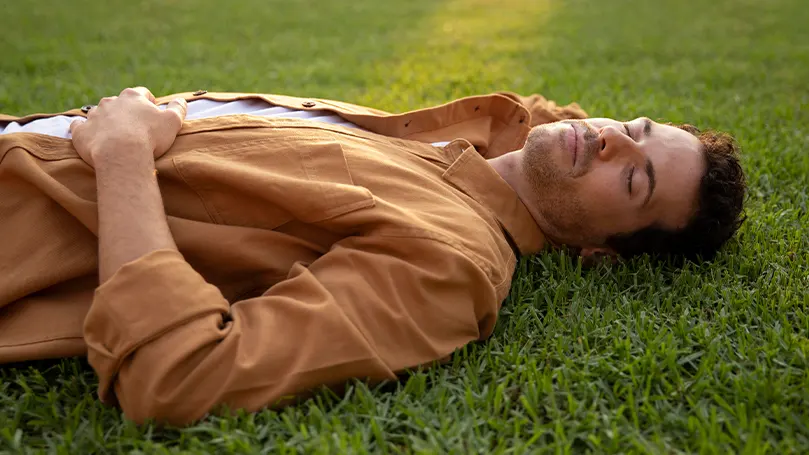
Carrying on from the previous tip, it's also important not to underestimate how cold it can be at night. The temperature can drop by ten degrees or more and this is only made worse if you sleep on the ground. This is because the ground itself will grow even colder and metaphorically sap all of your heat.
So, getting a good camping mattress for couples or for one is usually a good idea. Alternatively, you can sleep in the car or even get an air mattress and have your own bed! And it's important to note that a sleeping bag won't always be enough on its own. In fact, we recommend getting a good mattress or pad and a good sleeping bag on top if you want to say warm during the night.
Tip 3: Make sure to sleep on a flat surface
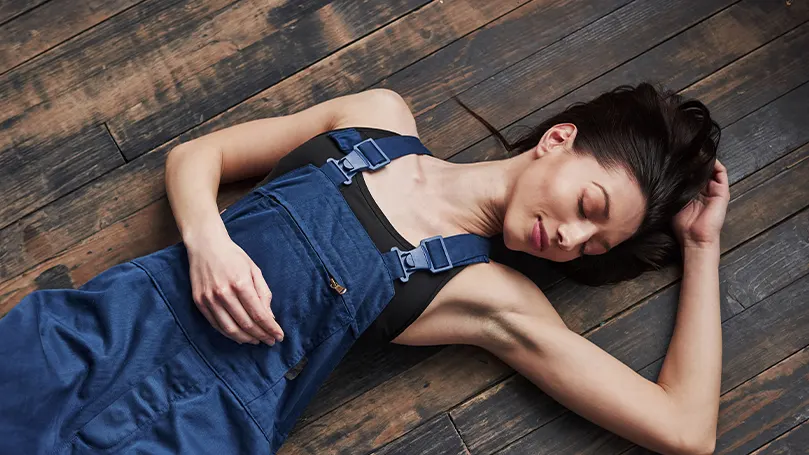
Although staying dry and warm are more important overall for your sleep quality, sleeping on an even surface shouldn't be neglected either! For one, if there are bumps all over the floor, you can get bruises throughout the night and your spine might end up in an unhealthy position.
But even if you utilise a good camping mattress, you want to avoid sleeping on a slope. This is because you can end up sliding off slightly during the night. Not only will this give you a wedgie but it might also result in further discomfort if your lower body slides off the mattress. Plus, getting a good night's rest can be difficult if all of your blood goes to your head or to your feet.
Generally, having your upper body on the slope is the lesser of two evils. It might even help with conditions such as GERD. However, if possible, try to find a flat surface in order to be as comfortable as possible.
Tip 4: Know your surroundings
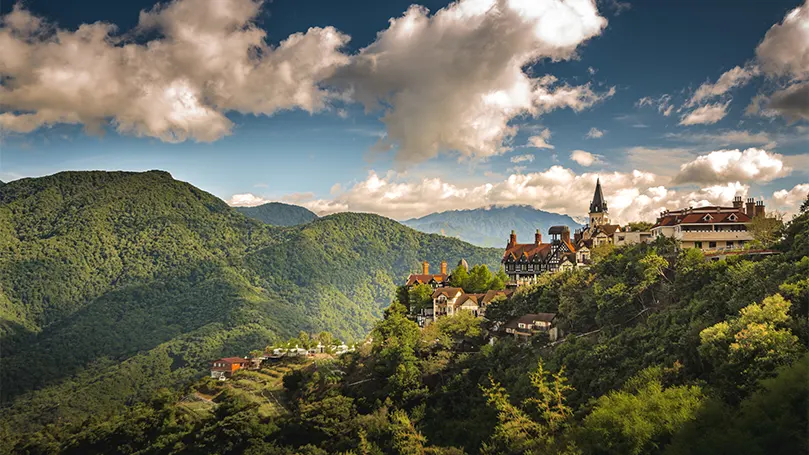
This refers to a few key aspects. First off, knowing whether there's any wildlife near your campsite is essential if you want to get proper sleep. And knowing details such as the nearest body of water or even the closest road can help you stay safe if anything goes wrong.
However, it also has simpler applications. For example, taking note of where the sun comes up. After all, if you keep the natural light cycles in mind, you can make sure that your tent doesn't get drowned in light at seven in the morning. Alternatively, you can use the sunlight to your advantage!
For example, if you like to go to bed early, you can make sure that your head faces east. That way the sunlight will naturally wake you up in the morning. And when your circadian rhythm is on your side, you're far less likely to wake up groggy. You'll reap the full benefits of sleeping outside!
Tip 5: Be careful around the campfire
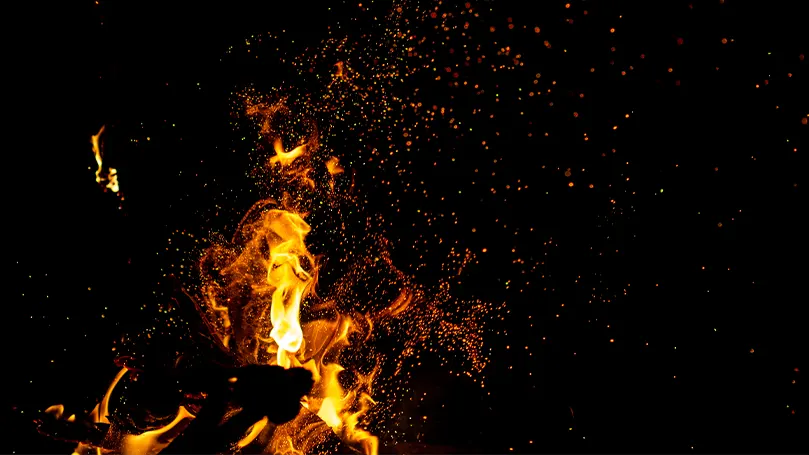
No camping trip is complete without a campfire, a guitar, and some smores! However, make sure to take the proper precautions in order to stay warm and safe. For one, never have your tent be downwind from the fire, as a rogue ember can easily damage the fabric or even set it on fire.
Secondly, make sure that the fire is safely secured from all sides with rocks or dirt so that it can't spread. And completely stamp it out once you leave in order to prevent any potential forest fires! Lastly, if no one present is experienced with handling fires, it can be a good idea to stomp it out during the night.
After all, staying safe should always be your number one priority. And a portable heater can keep you warm while also posing a much lower risk to your safety.
Tip 6: Listen to your body
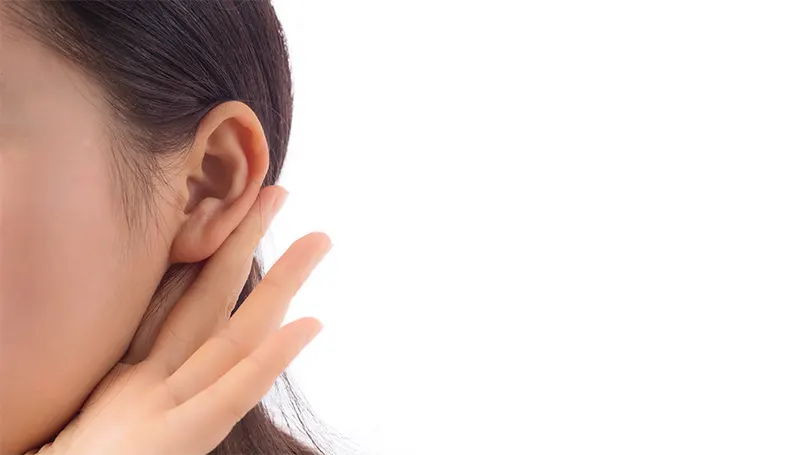
Here we'd like to touch upon something we've already mentioned – your circadian rhythm. In short, it's like your inner clock that tells your body when it's time to sleep and when you should wake up. And this system is heavily influenced by light and temperature changes. This is something you can use to your advantage and is colloquially known as circadian hacking.
And don't worry, it's a lot simpler than it sounds. All you have to do is to go to bed a few hours after sunset. Odds are, your body will naturally feel sleepy at this point, as the air gets colder and your circadian rhythm gives the command to rest. So, don't fight it!
Although it can seem tempting to stay up and watch the sunrise, going to bed on time is a lot better for you overall. It will help instil a natural sleep schedule and you're likely to feel more refreshed in the morning as well.
Tip 7: Make sure you get uninterrupted sleep
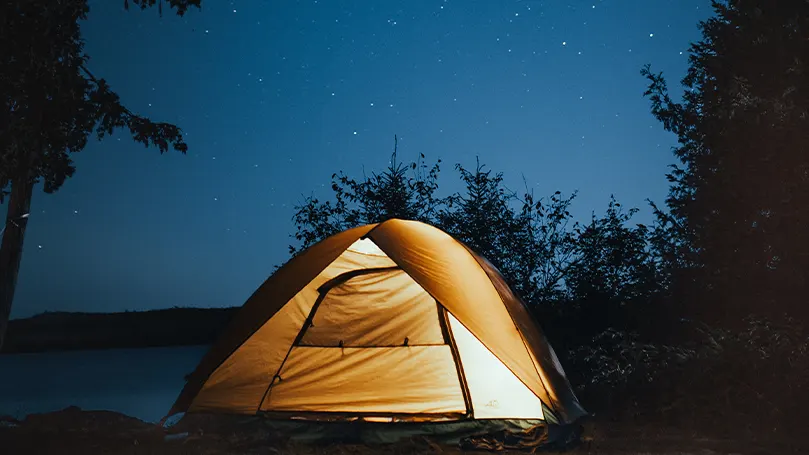
While you might think this is easier said than done, there are quite a few precautions you can take in order to minimise the odds of waking up in the middle of the night. Since these tips are fairly straight to the point and simple, we'll group them all up here!
And if you have any other tips that can secure campers a long and peaceful night of sleep, make sure to leave them in the comments!
- Go to the bathroom before bed – Getting up to go to the bathroom during the night is incredibly annoying. Since there are no lights, you have to stumble your way outside, put your boots on in the dark, and hope that you don't wake anyone up. So, limit how much water you drink 2-3 hours before bed and make sure to empty your bladder right before you call it a night.
- Get noise-cancelling headphones – While the sounds of nature can be incredibly calming, they can also potentially keep you awake. After all, it can be very eerie late at night when you hear something moving in the distance. But a good pair of sleep headphones will rid you of that problem!
- Get a sleeping mask – If you don't want to sleep when your circadian rhythm tells you to, a sleeping mask is a must! After all, most tents can't block out the sunlight completely and you'll be in for a rude awakening. So, try getting the best sleep mask that you can.
The benefits of sleeping outside
After going through all of these tips, we wouldn't blame anyone for thinking that sleeping outdoors is more trouble than it's worth. However, it actually comes with quite a few benefits! So, in order to encourage everyone to take part in some outdoor camping, we've decided to compile a few reasons why sleeping outside is good for you.
It's good for your mental health
One of the major advantages of sleeping outdoors is how it affects your mental health. After all, when you're outside in the fresh air with birds chirping from nearby branches, you can't help but feel happy. And if you want to relieve stress, is there anything better than napping near a river with only the sound of water breaking the silence?
Of course, all of this is subjective and can vary from person to person. But as a general trend, we'd say that a vast majority of people will benefit from nature and some fresh air in terms of their psyche.
It's good for your physical health
If you don't think that your mental health needs a boost, what about your physical health? After all, fresh air does a lot more than just clear your head! In fact, it helps improve brain and body function as a whole! And this is especially true if you've been stuck in a tiny office the past few months/years.
Plus, sleeping outdoors can encourage you to do other healthy things – such as exerting your body and cooking something instead of buying heavily-processed food. And you can imagine the many health benefits those changes could bring.
It's good for your sleep quality
Lastly, let's talk about sleep. Proper sleep is important for both your physical and mental health, which is why we left it for the end. And, as it turns out, sleeping outdoors can help you get a good night's sleep quite efficiently!
First off, as we've touched upon, your circadian rhythm gets to act naturally, making you fall asleep easily and soundly. Secondly, you're less likely to look at a screen, thus minimising blue light exposure and further aiding your sleep. Lastly, all the calming factors we've mentioned, from the air quality to the ambience, will keep your head clear and your blood pressure low.
Combine all of these factors and you get the best sleep of your life! And if you're careful and maintain similar healthy sleep habits, you can benefit from the now heightened serotonin levels even once you've returned home. So, sleeping outdoors can help with sleeping indoors as well!
Spread the word
Recommended reading:

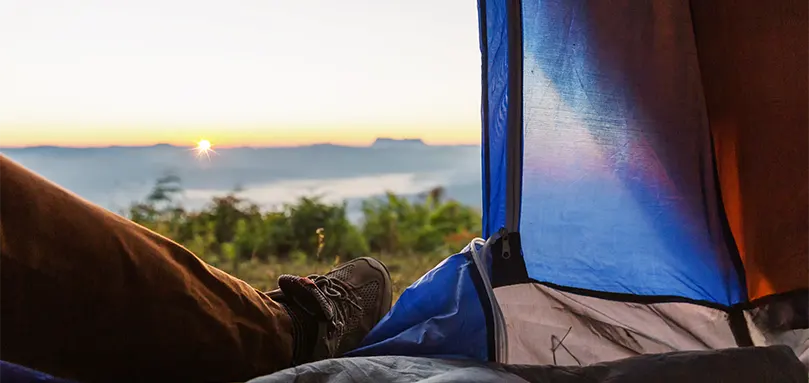













There are no comments yet
"*" indicates required fields